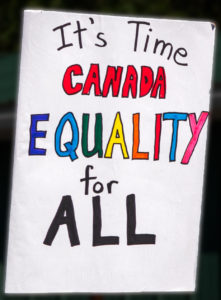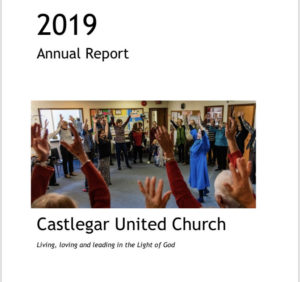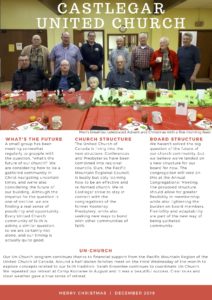Christmas Newsletter
Advent Message from Rev. Greg
The afternoon light fades into nighttime sky awfully early at this time of year. For some this means more isolation and separation. For others, this means time to cozy up under a blanket, maybe with a great book or movie, maybe even with a loved one. I’ve learned we have a choice to embrace winter or resist it, but the latter never works out in our favour. I’ve come to know the Danes use the term “hygge” to describe the concept of accepting winter’s invitation to get cozy.
Advent is simultaneously about dwelling with the darkness, and finding equanimity therein. It’s about facing our fears, and turning them into opportunities. Joy isn’t a natural part of the human reaction to December darkness, but Advent invites us to find joy — and hope, peace, and love — anyway. God is always with us; and yet we wait for God’s coming again.
So may we find joy in the darkness; may we accept winter’s invitation to get cozy; and may we wait patiently but actively for a God who is already here, and also is still to arrive.
Read the rest of the newsletter here…
Like a Hospital for the Soul
What is “success” for a church? I’ve been mulling over this question for, well, my entire adult life. At the Kootenay Faith Fest in June of 2019, our keynote speaker, Carol Howard Merritt offered some ideas of what “success” looks like in the church. She described a successful church as a place of healing; she spoke to the necessity of consisting of multiple generations; and she highlighted the need for innovation, where decision-makers say, “yes, and…” to new ideas. I agree with all of these points. If a church doesn’t offer healing in the case of brokenness, there’s no gospel there. If it welcomes people of only a narrow age range, that’s not exactly a full community. And if innovation isn’t welcome, the church should expect to shutter its doors before long.
If a church doesn’t offer healing in the case of brokenness, there’s no gospel there.
But hold on a sec…”a place of healing”? Isn’t that what a hospital is for? Churches are scarce equipped to suture a deep wound or provide an IV drip!
The healing miracles described in the New Testament may well be intended literally. It’s entirely possible that Jesus had special abilities: maybe he studied reiki or another Eastern tradition (this was long before Western medicine). It’s also possible these stories describe spiritual wounds, or brokenness of the soul. These days, few churches serve as places of physical healing. But if we agree with Manfred Max-Neef that spiritual needs are to be seen on par with physical needs, churches can offer a lot of healing. I might even assert that churches can offer more healing than the places we typically associate with healing, because every soul is wounded in some way.
When I talk to practitioners, I often hear a deep yearning to be able to address root causes. The medication, surgery, and lifestyle changes practitioners might recommend or prescribe usually treat that which is easy to detect. But what about the underlying anxiety from seeing the challenges present in the world and feeling utterly undercapacitated to address them? Or in the case of dying, maybe there’s some important pain relief from narcotics or physical therapies. But what about the meaninglessness some feel when face-to-face with their final breath? This is where a “successful” church can step in.
A “successful” church treats the root causes of that which ails the soul.
I suggest a healthy dose of skepticism for anyone who claims a pastor can cure sickness, or a church can restore sight. A cure? Not likely. But healing? Absolutely! Our lives can be made whole even in sickness, even at death or in grief. People with disabilities who shouldn’t expect a cure, per se, should absolutely expect to live with wholeness. A “whole” life doesn’t mean an “easy” life. A cured body isn’t necessary for a healed soul.
The soul begins to heal when our brokenness is acknowledged and accepted (and not avoided). The soul continues its healing when we are embraced for our whole selves (and not asked to leave a particular characteristic at home). The soul begins to remove its bandages when it offers healing to another, when genuine community forms.
A “successful” church is a place of deep healing, where we are made whole through mutual care.
A “successful” church recognizes that none of us is actually whole yet, and supports one another on the journey.
A “successful” church reminds us of the gospel story, the one where love overcomes injustice, and where even enemies are embraced as loved ones.
When the kin-dom is fulfilled, every church will be a place of healing, through which our journeys to wholeness continue.
A Truly “Mighty” Man Shares Power
Editor’s note: At the Mighty Men Conference hosted recently near Castlegar, the keynote speaker encouraged participants to espouse the late-ancient household code that includes wives “submitting” to husbands. Because the speaker had elsewhere voiced strong anti-LGBTQ+ sentiments, a group protested the conference.
Thousands of years ago, when the books of the Bible were written, women were not legal persons. Women were the property of their fathers, brothers, or husbands. The writers of the Bible knew nothing else. They would have had trouble imagining a world where all people have struggled for equal rights regardless of gender (or race or class or sexual orientation or citizenship, for that matter). We now know better.
We now know that all people deserve equal rights.

Some men are uncomfortable with the trends in recent decades (or centuries, even) wherein women have gained power. Some men experience the empowerment of women as the disempowerment of men. This is because some men’s power was actually a power over other people. Some men feel threatened by the idea that sharing power actually allows more people to find meaning and fulfilment in life. Some men feel threatened by the idea that sharing power allows us, as a society, or civilization, or species, to overcome immense adversity and to solve problems were were once thought insoluble.
When men exercise power with women (or trans people or children), wonderful things can happen. Specifically, people are free of the bonds that held them back from loving, or from being the most compassionate version of themselves.
When a household exercises power with one another (rather than power over one another), these households becomeplaces of love and kindness, where men, women, children, and all feel empowered to solve the challenges that come their way. A lost job? We’ve got this, together! A sickness or death in the family? We can handle this, together! Worry and anxiety about the future? We’ll work through this, together. That’s what a household exercising power with one another allows.
Seeing power as a zero sum game – ie. when people struggle to gain power over another – is a scarcity mindset that holds us all back. A scarcity mindset forces us to live in fear that someone (even an imaginary someone) is always after something we have. Fear, envy, jealousy – these are the offspring of a scarcity mindset.
Seeing power as something to be harnessed and shared with another is an abundance mindset that frees us to be fully loved and to love fully. An abundance mindset frees us from fear. An abundance mindset allows us to care collectively for our resources. An abundance mindset invites diversity as a source of creativity and innovation so that we can solve the challenges before us.
The Bible makes many claims about God and Jesus. One thing that is consistent throughout the New Testament is that Jesus encouraged us to embody an abundance mindset. There is enough love in the world (previously they thought love was limited). There is enough food in the world (previously they shared with only their tribe). There is enough security in the world (previously they knew only to hate their enemies). Jesus invited those deemed unworthy in his specific context – women, tax collectors, the diseased – to break bread with him, showing there is enough for all. There is even enough power for us all to share, regardless of a millennia-old household code written by someone without a family of his own.
Anyone who teaches fear or power over (such as inviting women to submit to husbands or parents to physically abuse children for alleged pedagogical purposes) is teaching a scarcity mindset that completely opposes the teachings of Jesus. They justify these things with pull-quotes written by people like Paul and Paul’s followers – people who are not Jesus. They quote words from two thousand or more years ago, before we knew that women are full persons, fully endowed with every human right.
We have the capacity for much more than the desire for power over, which a scarcity mindset creates. Men need not fear – there is enough power and love for all. In fact, even men are better off when power in the household or in society is shared and seen as power with one another to overcome whatever challenge comes our way. Fear teaches a zero-sum game. Abundance teaches there is enough for all.
Let us be brave and embrace an abundance mindset because there is more than enough power and love for all. The truly mighty man is the one who embraces compassion, wisdom, and abundance as the cornerstones of the loving household.


